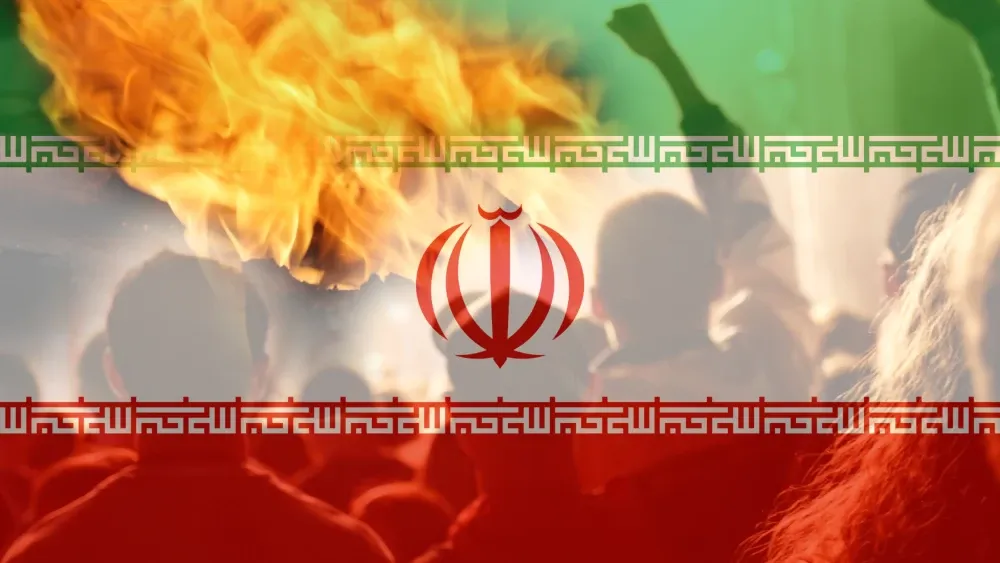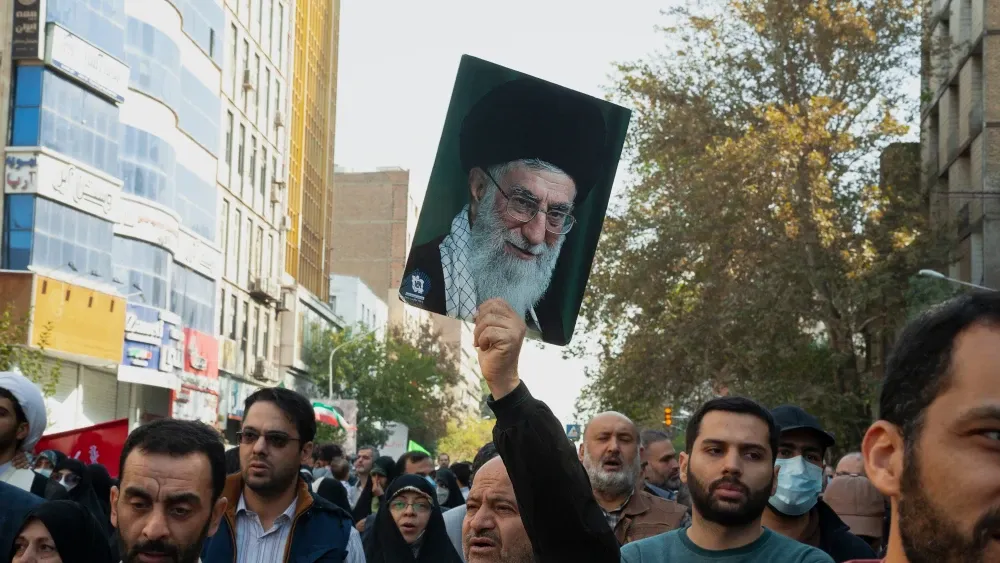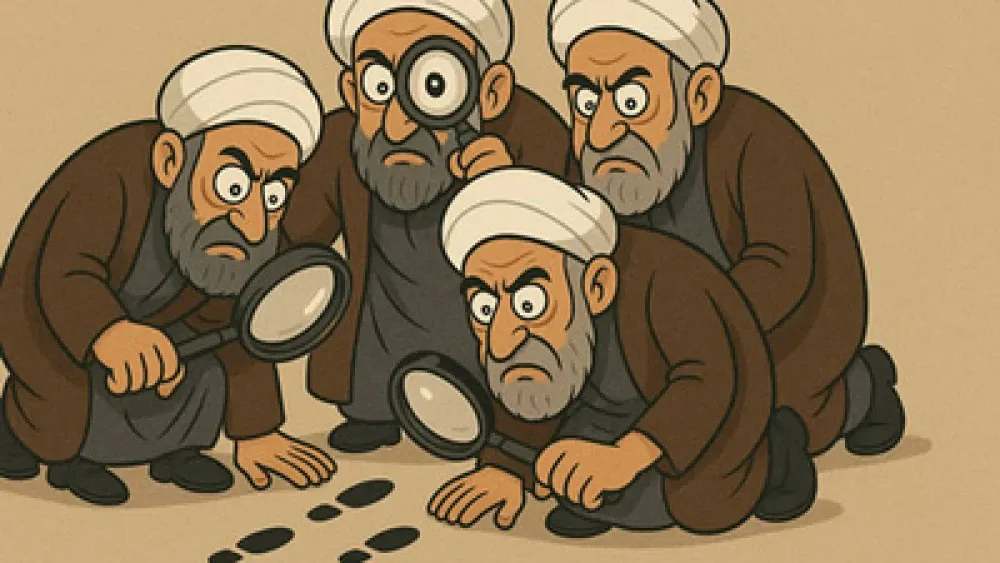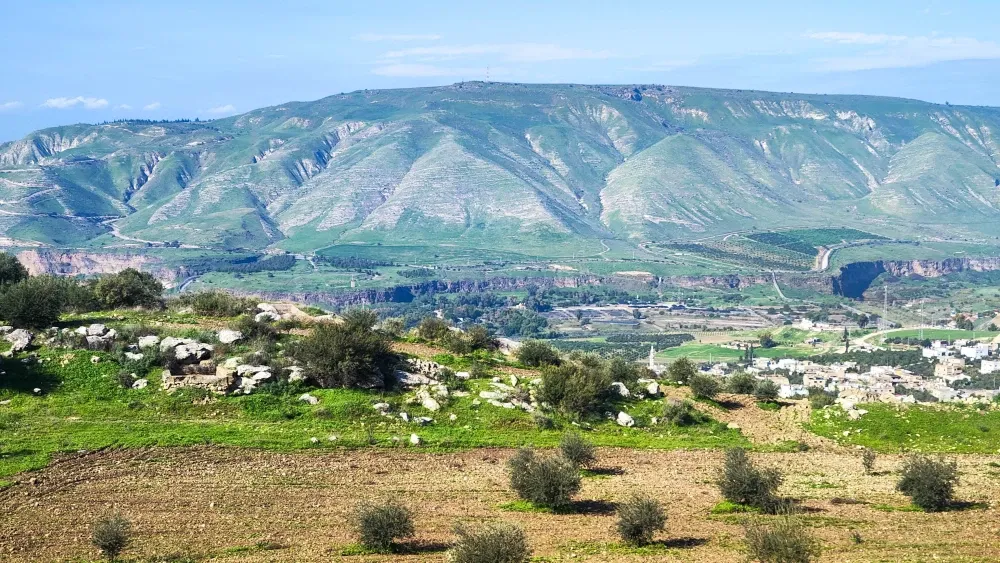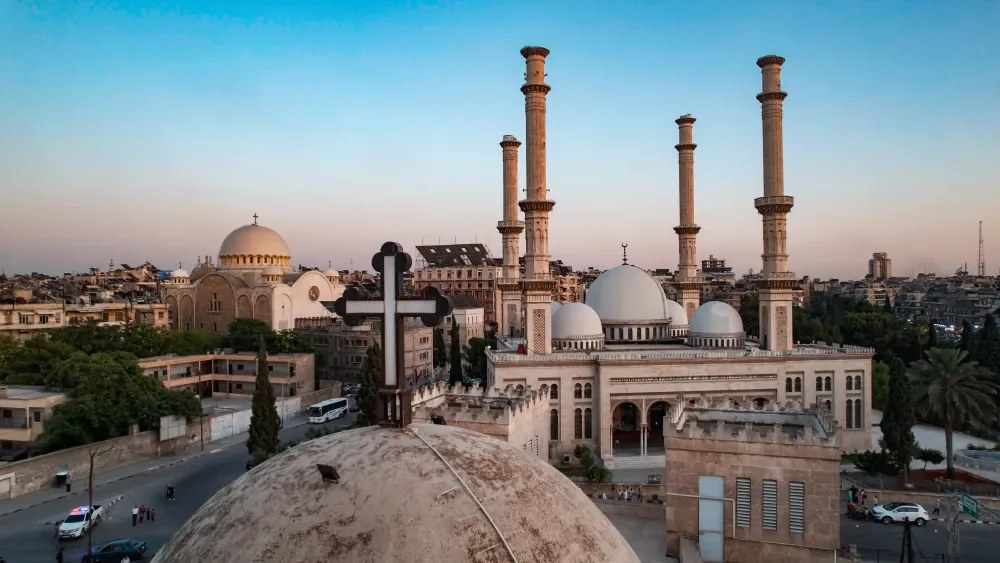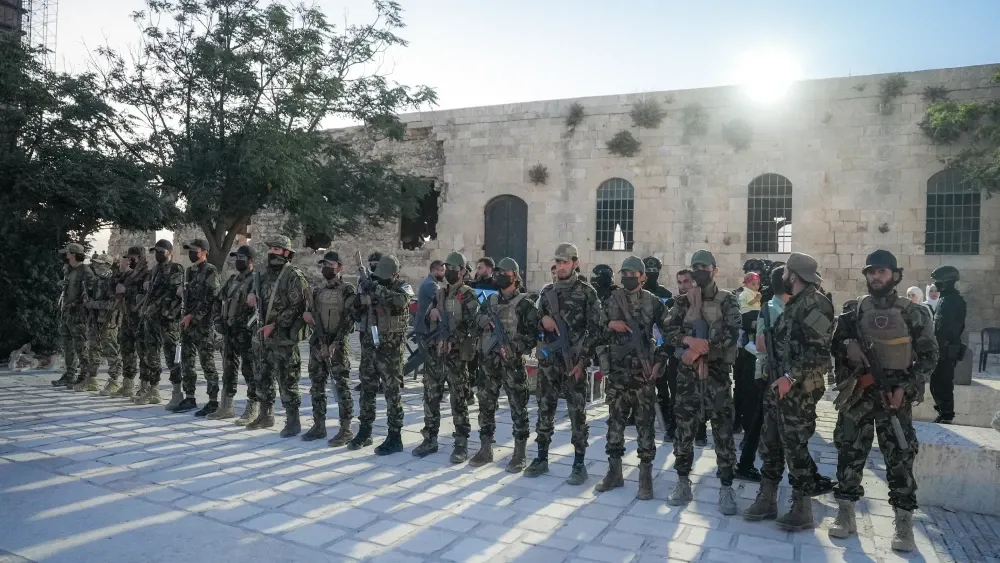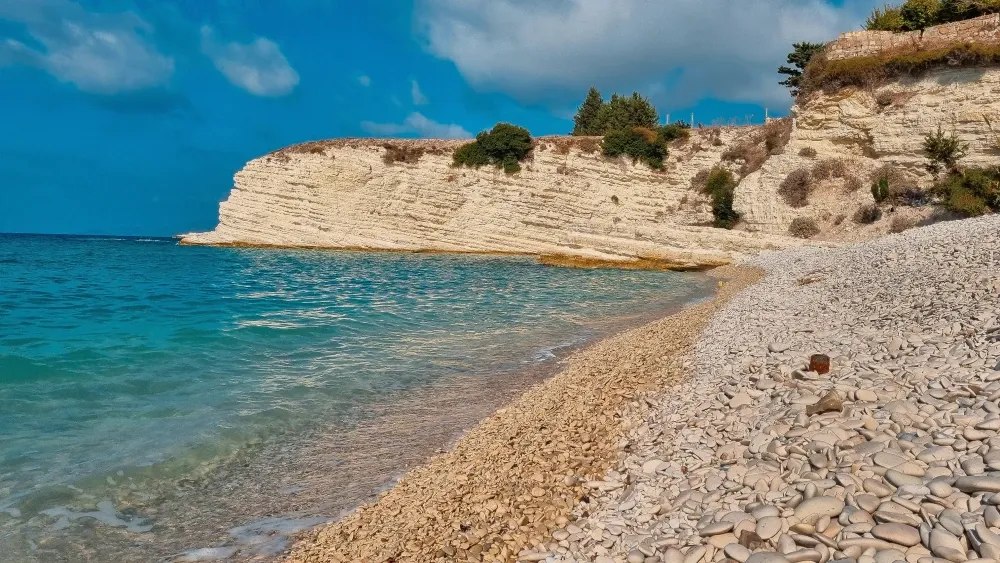| ||
 | ||
| Will Iranians Rise Up?; Hidden Khamenei; The Syrian Regime's True Nature By Winfield Myers ● Jul 07, 2025 Smart Brevity® count: 8 mins...2108 words Saeid Golkar and Kasra Aarabi ask “Why Don’t the Iranian People Rise Up?” Because, they report, the Islamic regime spent years creating a security apparatus that blankets the country and which they activated the moment Israel attacked. That hasn’t stopped regime critics from ridiculing Supreme Ruler Ali Khamenei, according to Mardo Soghom, who writes that whether or not there will be an uprising against the regime is “the million-dollar question no one can answer.” We feature four articles on Syria, including two by Sirwan Kajjo, who argues that Israel should not normalize ties with the country’s new Islamist regime. We also hear from Ribal al-Assad and Aymenn Jawad Al-Tamimi. | ||
ICYMI: “From October 7 to the 12 Day War: Two Years That Reshaped Israel and the Middle East” with Gadeer Kamal-MreehThe Middle East has been transformed by the recent Israel-Iran war, with profound strategic, diplomatic, and military consequences. The war was the culmination of the contest which commenced with the Hamas massacres of October 7, 2023. How will this conflict reshape the Middle East’s power dynamics? What are the prospects for peace or for further escalation? Gadeer Kamal-Mreeh is the director of Eastern Mediterranean policy at the Middle East Forum, and the founder of GKM Global Consulting. She previously served as a Knesset member for the Blue and White party, making history as the first Druze woman elected to Israel’s parliament. During her tenure, she chaired caucuses on Druze women and regional planning and held key roles on committees addressing women’s rights, the environment, and crime in Arab communities. In 2021, she was appointed by then-Jewish Agency Chairman Isaac Herzog as the first non-Jewish Senior Envoy to Washington, D.C. She holds a degree in medical imaging and social sciences from Bar Ilan University and an M.A. in international relations from Haifa University. To watch the full podcast episode, click here. | ||
Why Don’t the Iranian People Rise Up?The recent clash between Israel and Iran exposed a vast, largely unknown security network that the regime preemptively activated the moment that Israel’s operations started. Why it matters: This web of control, woven by the Islamic Revolutionary Guard Corps (IRGC), explains why protests didn’t erupt despite Israel's air dominance.
The big picture: Since 2007, the regime has invested in creating an extensive suppressive apparatus across Iran, at every level of society—something that both foreign powers and the Iranian opposition have completely overlooked.
Zoom in: As Israel took control of Iranian airspace, the Iranian Interior Ministry’s National Security Council (known as “SHAK”) gave orders to the IRGC operational-security military headquarters to neutralize any gathering that could lead to protests.
The intrigue: Unless the IRGC’s extensive security web—which permeates every level of Iranian society and provincial structure—is dismantled or at least significantly weakened, large-scale anti-regime protests are unlikely to take root, despite widespread public discontent. To read the full article, click here. | ||
Khamenei Remains in Hiding as Post-strike Uncertainty Grips IranIn the aftermath of Israel’s air campaign, Iran’s Supreme Leader, Ali Khamenei, remained in hiding for weeks, sparking online mockery and rumors of regime instability. Why it matters: Khamenei's absence during key events, such as the Muharram mourning ceremonies, raises questions about his grip on power and potential internal power struggles.
The big picture: Former President Hassan Rouhani and reformist allies are allegedly maneuvering to challenge Khamenei’s authority, possibly reaching out to Israel for a regime change deal.
What they’re saying: Iranian activist Ammar Maleki suggests Khamenei's absence may not be voluntary, hinting at a power struggle that sidelines him.
The stakes: Many Iranians are asking if—and when—the public will dare to openly challenge the government through mass protests. It’s the million-dollar question no one can answer. Sensing revolutionary instability is one thing; predicting the precise moment a revolution erupts is nearly impossible. To read the full article, which appeared a day before Khamenei appeared in public for the first time since the start of hostilities, click here. | ||
Announcing MEF’s Junior Fellowship ProgramThe Middle East Forum is calling for applications to its Junior Fellowship program, open to emerging scholars, journalists, and analysts. This program provides a unique platform for participants to enhance their skills, share innovative ideas, and build networks among experts focused on the Middle East and Islamism.
Program details: The fellowship runs from September through June.
To apply: The deadline is July 15, with the program starting on September 1.
For more information, click here. | ||
Iran’s Crazy Search for SpiesAs Iranian officials arrest hundreds and execute supposed spies, their counter-espionage efforts reveal startling ineptitude. Israeli intelligence officers have been smuggling weapons, drones, communication gear, and even vehicles into Iran for years using “suitcases, trucks and tankers.” They and their Iranian agents have been spreading equipment throughout the Islamic Republic. Why it matters: The Islamic Revolutionary Guard Corps (IRGC) waste time chasing fantastical threats like spy squirrels and pigeons, while real espionage flourishes.
The big picture: Israeli spies have achieved stunning successes, from assassinating nuclear scientists to exploiting Iran's vulnerabilities during the Twelve-Day War.
What’s next: With key Iranian figures eliminated, surviving leaders live in fear of Israeli surveillance.
To read the full article, click here. | ||
Now Is Not the Time for Israel-Syria NormalizationAs discussions surface about Syria and Israel potentially normalizing relations, now is not the time to proceed. The fragile state of Syria's interim regime and deep-seated animosities present significant barriers to genuine peace. Why it matters: The regime of Syria’s interim President Ahmed al-Sharaa, emerging from a jihadist coalition, seeks a shortcut to legitimacy through peace gestures, risking regional stability.
The big picture: Syria's internal divisions, especially among armed radical supporters, threaten to derail any peace initiatives.
The stakes: Rushing peace could mirror past failures, like Lebanon's 1982 collapse, empowering extremists to regain strength.
What’s next: The United States and Israel should stand with regional minorities, rather than accept any order in which they are thrown under the bus for convenience. If al-Sharaa is truly a man transformed with the power to deliver, he should not object. If he does, then Washington and Jerusalem would be pinning their hopes on a mirage. To read the full article, click here. | ||
The Mar Elias Church Bombing Is a Wake-up Call to End the Islamist Reign of Terror in SyriaThe June 22, 2025, bombing of the Mar Elias Church in Damascus was not only an act of terrorism; it was also a calculated assault on Syria’s pluralism and identity and a declaration of war on coexistence, religious diversity, and the fabric of a society where Christians and Muslims, of different sects and ethnicities, have lived together for centuries. Why it matters: This attack, part of a broader pattern by Islamist extremists, underscores the regime's true nature and highlights the unchecked rise of sectarian terror.
The big picture: As Christians are integral to Syria's history, their persecution risks further emboldening extremist agendas, setting a dangerous global precedent.
The stakes: The international community must act decisively. Allowing extremists to hold power invites chaos, threatening global peace.
What’s next: It's time to choose sides. The global response should prioritize inclusive governance and reject the normalization of terror-backed regimes. To read the full article, click here. | ||
Integrating Foreign Jihadists into Syrian Military Is DangerousSyria’s new leadership, under interim President Ahmed al-Sharaa, plans to integrate 3,500 foreign jihadists into its military, a move now backed by the U.S. despite previous opposition. Why it matters: This shift risks legitimizing extremist influence within Syria's military and undermines U.S. counterterrorism efforts.
The big picture: Integrating these fighters could entrench extremist ideologies in Syria’s defense apparatus, challenging efforts to build a unified military.
The stakes: Normalizing the role of terrorist organizations within state structures could also undermine U.S.-led international counterterrorism efforts at a time when threats from terrorist groups remain high in Syria and across the broader region.
To read the full article, click here. | ||
Syrian Ministry of Tourism Guidelines and Rules on Beaches, Pools, and ClothingThe Syrian Ministry of Tourism has introduced conservative guidelines for beach and pool attire, reflecting the Salafi influences of the new regime under President Ahmed al-Sharaa. The rules were with translated, with an introduction, by Aymenn Jawad Al-Tamimi. Why it matters: These rules impose a conservative dress code, mandating modest swimwear like burkinis on public beaches, while only high-end resorts frequented by foreign tourists but not conservative Syrians permit Western swimwear.
The big picture: As Syria emerges from the Assad era, these regulations signal a societal shift to the norms of an Islamist regime.
What’s next: Syrians are now faced with adapting to these stringent norms. To read the full article, click here. | ||
| Thank you for your support and for subscribing to the Dispatch. If you enjoyed it, please forward it to a friend, and please let us know what you thought of this issue. Sincerely, Winfield Myers | ||
| Was this edition useful? Your email will be recorded and shared with the sender | ||
| Powered by | ||
| ||


